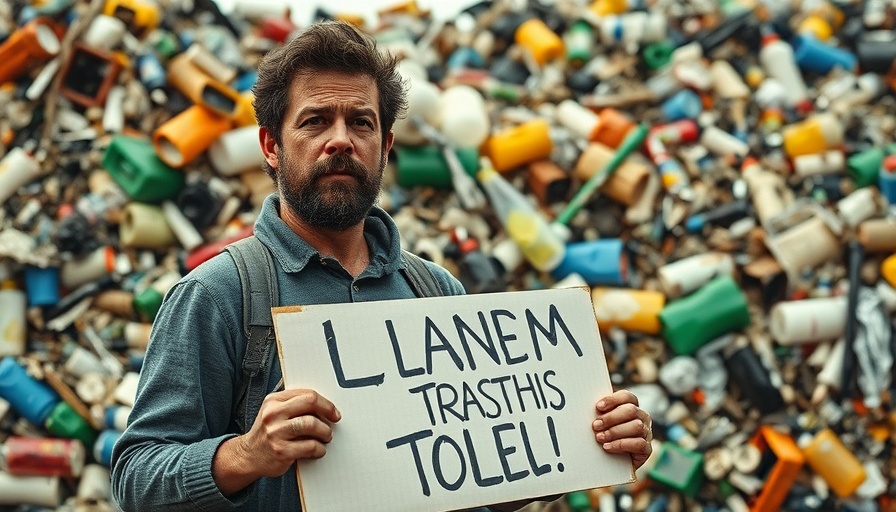
The Plastic Waste Dilemma in Veracruz: What Travelers Need to Know
In Veracruz, a port city known for its vibrant culture and enticing cuisine, the Villa Allende landfill controversy has drawn international attention. Greenpeace Mexico recently spearheaded a protest, highlighting inadequacies in plastic waste management and calling for stronger enforcement of anti-plastic laws. For digital nomads and expats exploring relocation opportunities, understanding these environmental challenges is essential, affecting both local living conditions and the broader health of the region.
Why Environmentally Conscious Travel Matters
The protest in Veracruz underscores the environmental impacts of unchecked plastic waste, with 350 to 400 tons of trash arriving at the Villa Allende site daily. While situated less than 500 meters from residential areas, the landfill is emblematic of a larger national issue, with Mexico producing 1.9 million tons of plastic waste annually of which less than 10% is recycled. As potential new residents, travelers have the unique opportunity to influence local markets by demanding sustainable practices and supporting businesses that prioritize eco-friendly products and waste management solutions.
Future Predictions and Trends: Moving Toward a Sustainable Mexico
Greenpeace Mexico's continued advocacy is bringing attention to innovative solutions and fostering debate about future waste management strategies. As Mexico embraces more sustainable practices, it is likely that we will see an increase in incentives for alternative materials and improved infrastructure for recycling. For those considering Veracruz as a place to settle, these future developments could signify a shift toward more eco-friendly living conditions that align with a conscious lifestyle, potentially elevating the region as a model for sustainability across Latin America.
Unique Benefits of Understanding This Situation
For expats and nomads, being informed about the plastic waste issue in Veracruz equips them to make mindful decisions that support environmental restoration. Their lifestyle choices can inspire local communities to adopt greener habits, enhancing the quality of living both environmentally and financially. Embracing this knowledge can lead to a sustainable integration into the vibrant Mexican culture, where traditional practices can harmonize with innovative solutions.
 Add Row
Add Row  Add
Add 




Write A Comment